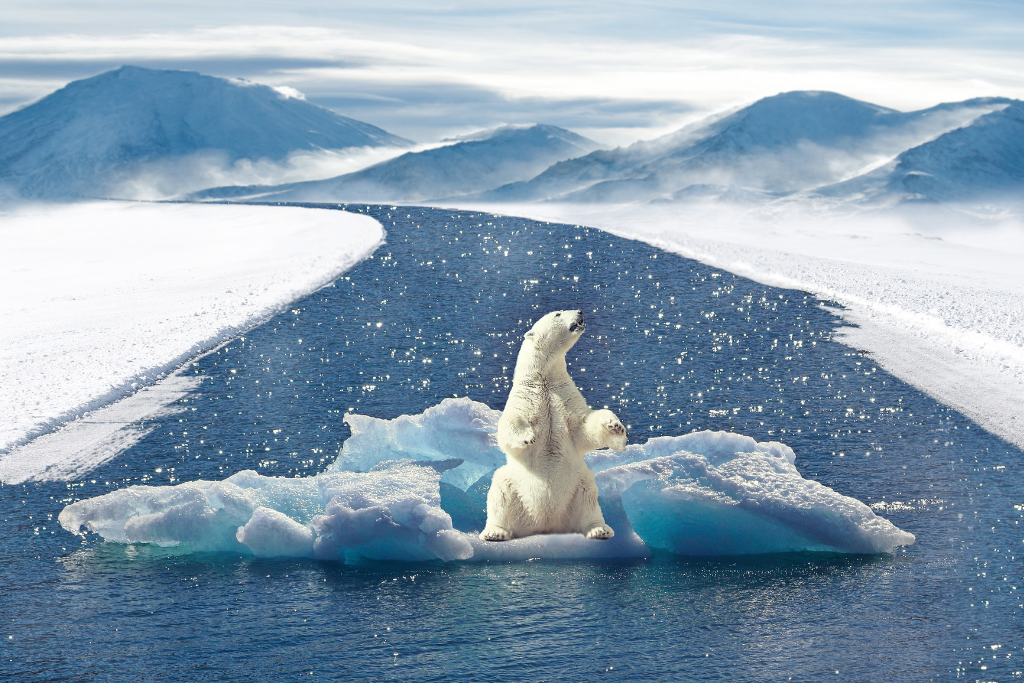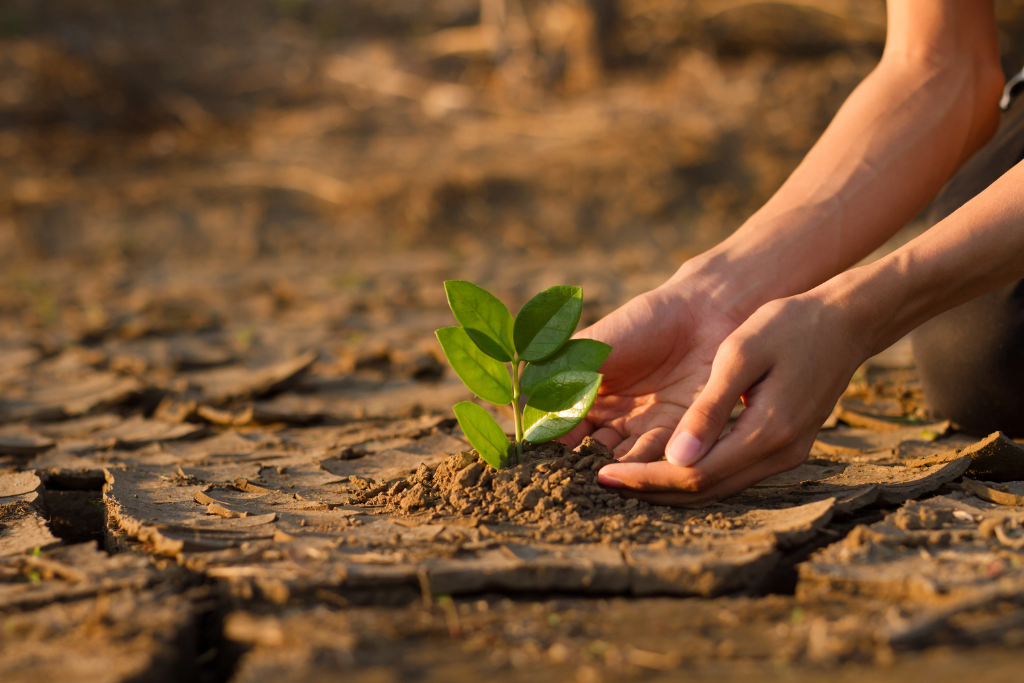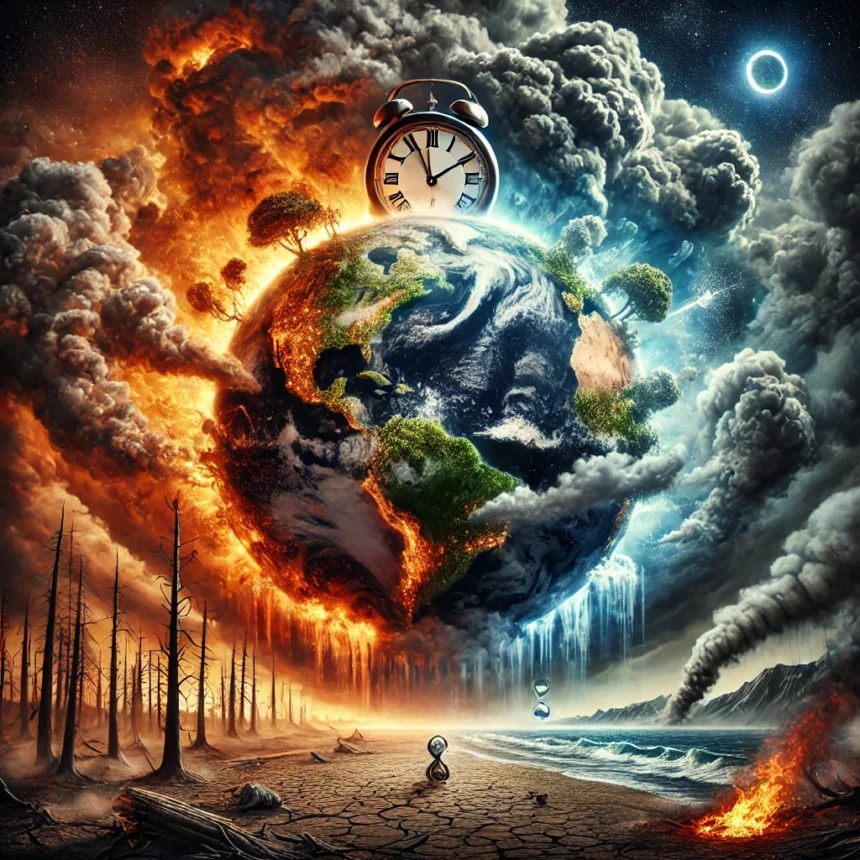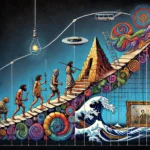Gaia, a planet teeming with life, is at a critical crossroads. Gaians have significantly altered the natural systems of their world through activities that increase global temperatures, modify weather patterns and threaten biodiversity. In recent years, the planet has experienced extreme weather events with alarming frequency and magnitude. Is Gaia on the brink of ecological collapse, or do they still have time to change course without external intervention?
The Gaians already have the knowledge and technology to mitigate climate change.
A planet on the edge: the most recent events
Unprecedented heatwaves:
In the summer of 2023, multiple regions of Gaia reached record temperatures. Places such as Europe and North America endured heat waves in excess of 40°C, causing hundreds of deaths and damaging critical infrastructure.
These extreme temperatures are linked to an increase in greenhouse gases, which trap heat in the atmosphere.

Increased weather phenomena:
More powerful and prolonged hurricanes have devastated coastal areas, such as Hurricane Ian in the Caribbean and the United States. Storms now have more energy due to warmer oceans.
In Asia, extreme monsoon rains caused massive flooding, affecting millions and destroying essential crops.
Prolonged droughts and desertification:
In Africa, the Horn of Africa has suffered its worst drought in decades, leaving millions at risk of starvation.
In South America, regions such as the Pantanal, Gaia’s largest tropical wetland, are rapidly drying out, disrupting key ecosystems
Accelerated ice loss:
Greenland and Antarctic glaciers are losing mass at record rates, contributing to rising sea levels.
Coastal communities in countries such as Bangladesh are already facing recurrent flooding and forced displacement.
Massive extinction of species:
One million species are at risk of extinction due to habitat destruction and climate change. This not only disrupts ecosystems, but also jeopardizes the survival of humans, who depend on biodiversity for food and medicine.
Is Gaia at the point of no return?
Gaian scientists themselves warn that the planet is approaching several climate tipping points, where changes could become irreversible. These include:

The disappearance of glaciers in Greenland and West Antarctica, which would raise the oceans by several meters.
The collapse of the Amazon: This tropical forest, known as the “lung of Gaia,” could become a savanna, releasing massive amounts of carbon.
The thawing of permafrost in Siberia, which would release large amounts of methane, a greenhouse gas much more potent than carbon dioxide.
Although these points have not yet been fully crossed, experts agree that the time to avert disaster is extremely limited.
The road to recovery
From our experience we have observed civilizations that faced similar environmental crises and managed to reverse the damage. Gaians have the knowledge and technology to mitigate climate change, but they need concerted global action. Here are our recommendations:
- Drastic emissions reductions:
Gaianas must move away from fossil fuels and embrace renewable energy such as solar and wind. Decarbonization is critical to stabilizing the climate.
- Massive deforestation:
Restoring tropical forests such as the Amazon can help absorb carbon dioxide and preserve biodiversity.
- Technological innovation:
Carbon capture technologies could be key to reducing the levels of greenhouse gases in the atmosphere.
- Changes in consumption:
Transitioning to more sustainable diets and efficient use of natural resources would reduce pressure on ecosystems.
- International cooperation:
Gaians must overcome their political divisions and work together on ambitious global treaties like the Paris Agreement, but with stronger and more binding commitments.
A message of hope
Although the situation is critical, Gaia still has the opportunity to turn the tide. History has shown that Gaians are capable of great innovation and collective action when faced with existential threats. The question is: can they overcome their tendency toward conflict and inaction in time?
For our part we watch with equal parts hope and concern. Gaia is a unique treasure in the universe, and its preservation benefits not only humans, but also future generations and civilizations that admire its resilience and creativity.
Will Gaia be ready to answer the call?





